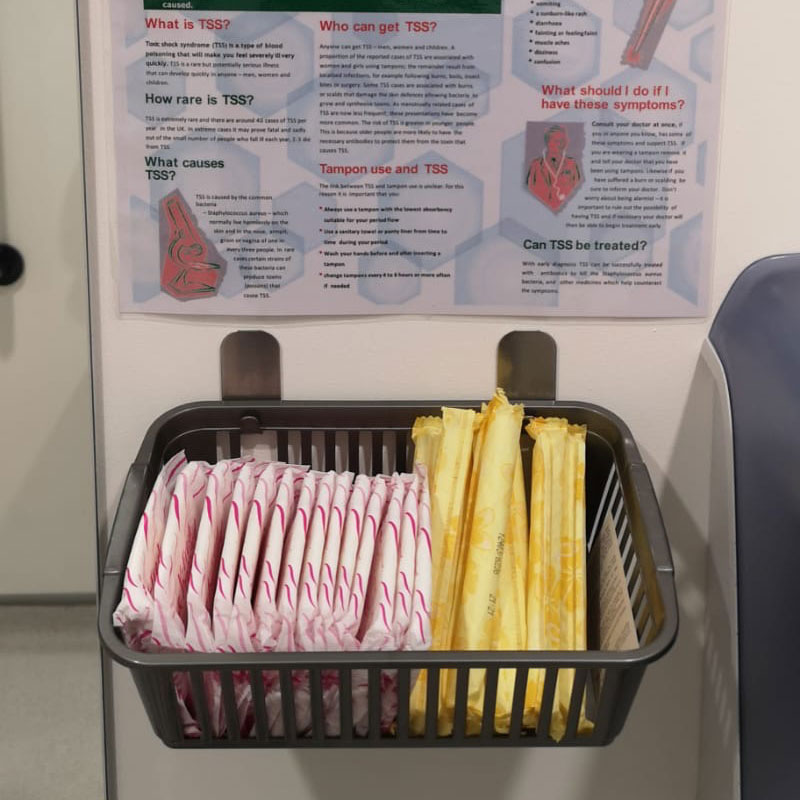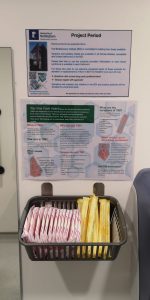
March 8, 2021, by jicke
Project Period brings inclusivity to BDI bathrooms
International Women’s Day is a global day celebrating the social, economic, cultural and political achievements of women. Two researchers from the Biodiscovery Institute have gone the extra mile for their colleagues and launched Project Period to provide free sanitary products.
Second year PhD student Kavita Raniga who is working on stem-cell derived cardiomyocytes and drug screening joined forces with Kate Butcher, post-doc working on drug repurposing for paediatric acute myeloid leukaemia, to create and launch Project Period.
Kavita says: “We believe that sanitary products are essential hygiene items and should be freely available, as with other items such as toilet paper. Menstrual hygiene affects many people’s health, wellbeing and productivity at work. There is always more to do to ensure diversity and inclusivity within the workplace but making provision for period products for anyone who needs them is small step in the right direction.”
The pilot of Project Period launched in August 2020 with period products placed in baskets with signage, initially in just a few bathrooms but then extended to all the 21 bathrooms across the BDI.
Kavita and Kate maintain supplies in the bathrooms (female-labelled, accessible and unisex bathrooms across BDI 1, 2 & 3), these were initially funded by Professor Chris Denning and now sustained with donations. They restock them each month. They also provide information on toxic shock syndrome and are partnering with a local food bank to donate any surplus products.
Kate says: “Having sanitary products available means no-one need worry about being ‘caught out’ when at work, having them freely available gives equal access to these products to everyone in the building, and even to visitors. When we announced the launch of this project, we had very positive encouraging feedback, many were happy to see period products not only in female bathrooms but accessible and unisex.”
Kavita concludes: “The project is still evolving and after listening to feedback we are looking to supply more sustainable products too. We would love to see the provision of period products across all campus under a unified umbrella. It’s so important for mental health, wellbeing and productivity for university students and staff.”
No comments yet, fill out a comment to be the first




Leave a Reply